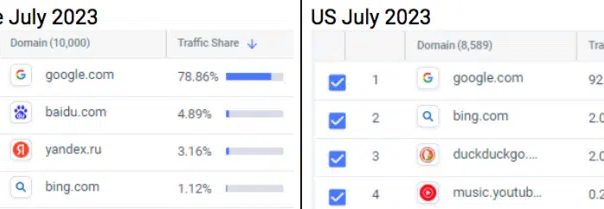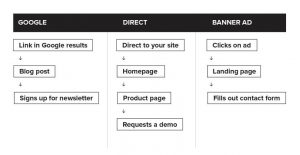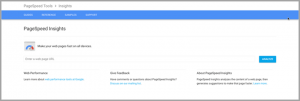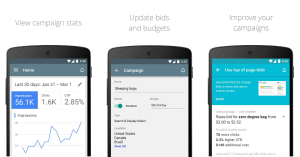Microsoft disputes the data but it’s clear AI hasn’t turned its Bing into the Google-slayer the company hoped for.
It’s been just over six months since the new AI-powered Bing with Bing Chat launched – but its overall search engine market share is down slightly globally and in the U.S.
Why we care. When the new Bing launched, it felt like the dawn of an exciting new era in search. Microsoft seemed to have a legitimate chance to erode some of Google’s dominance and become a truly worthy competitor to Google, thanks to its new conversational and generative AI take on search. Unfortunately, that hasn’t happened.
By the numbers. Bing’s U.S. search market share was 6.47% in July, per web analytics service StatCounter.
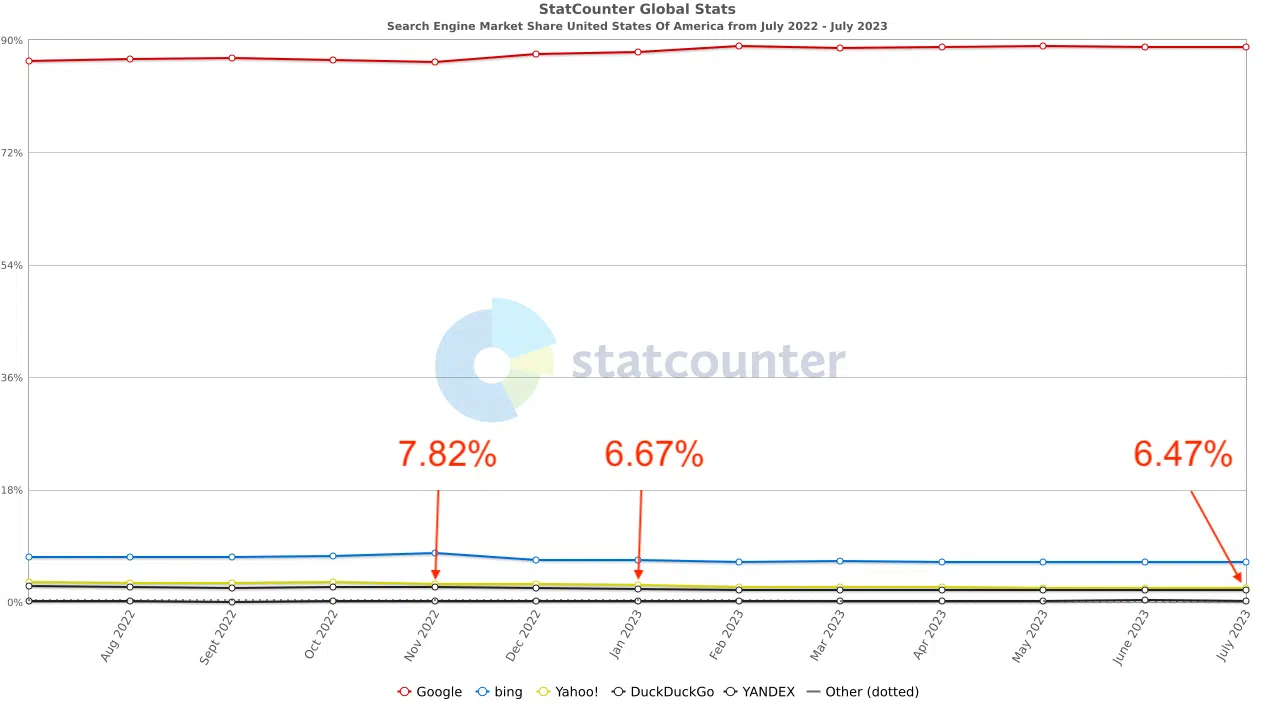
- In February, when new Bing launched, its market share was 6.35%. Bing’s market share peaked at 6.61% in March.
- But Bing’s U.S. market share was typically over 7% in 2022, with a high of 7.82% in November.
Bing’s global search market share was 2.99% in July, per StatCounter.
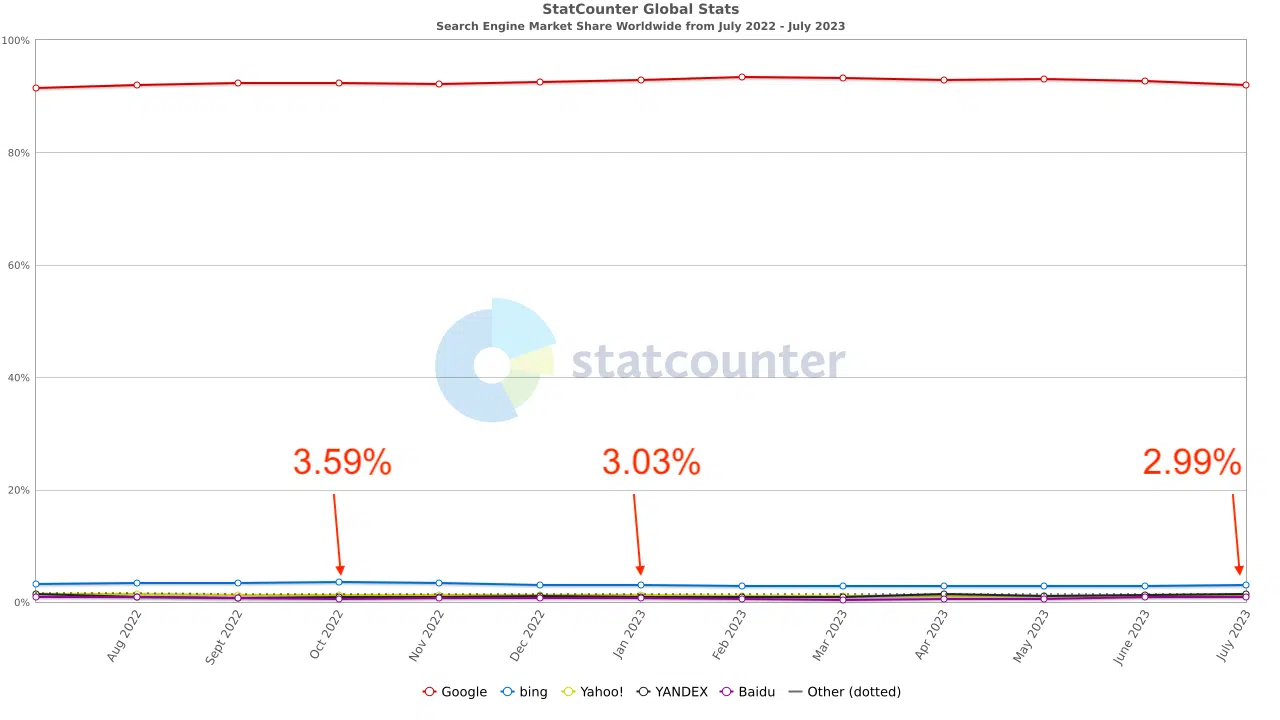
- The highest Bing’s global search market share has been this year was in January, at 3.03%, a month before new Bing was announced. In 2022, Bing was consistently over 3%.
Microsoft disputes these numbers. A WSJ article today (paywalled, so I’m not linking to it) noted that:
- “[Microsoft] disputed outside data, saying third-party data companies aren’t measuring all the people who are going directly to Bing’s chat page.”
StatCounter said its data takes traffic to and from Bing’s chat into account. Here’s what digital intelligence platform SimilarWeb told me:
- “It’s possible that we’re missing some of the Bing Chat interactions that use an Edge sidebar/extension, but I don’t know how significant that is in the grand scheme of things.”
Yusuf Mehdi, Microsoft’s corporate VP and consumer CMO, told WSJ the company’s internal data shows Bing taking market share from Google, but failed to provide any figures.
- “We’ve made more progress in the last six months than we have in the previous decade or two combined. We’re delighted with our start,” Mehdi said.
This claim seems a bit odd, considering around this time 10 years ago, Bing’s search market share was 17.9%, per comScore.
How Microsoft celebrates six months. Microsoft’s Aug. 7 blog post highlighting the number of chats (1 billion) and images created (750 million), as well as nine quarters of growth for Edge. And it earned them a surprising amount of PR thanks to many publications covering the launchiversary (Search Engine Land was not among those, because there was nothing new to report to you).
More data. I also checked with SimilarWeb and comScore for their latest data on Bing’s lack of growth. Here’s what a SimilarWeb spokesperson told me:
- “We can see a little bit of growth for Bing, but it’s incremental. According to our official rankings for the search engine category, they were the #2 search engine with a little over 2% traffic share in the U.S. as of July, but still at about 1% worldwide.”

Meanwhile, Bing saw a 6% decline in unique visitors and total visits from February to July, according to data from analytics firm comScore. Bing’s unique visitors and total visits also declined 2% year on year in July.
The post AI boost? Bing’s market share is down 6 months after launch appeared first on MarTech.
(11)
Report Post